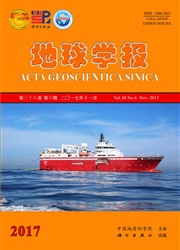

 中文摘要:
中文摘要:
地下水质量是水岩作用和人类活动双重动力的结果,在认识地下水质量的同时还应知道其影响因素。本文在严格分析地下水质量分类标准和指标值的基础上,提出了衡量地下水质量的单指标综合评价和影响因素识别相结合的方法。该方法不仅能够反映具有明确物理意义的地下水质量类别,还能够划分区域地下水人为污染的可能性。本文以华北平原为案例区,选择具有代表性的6063个地下水井,检测了49项无机和有机指标。分析认为华北平原地下水质量受地质环境和水文地质条件控制,一般化学指标对地下水质量影响程度最高,原生指标中锰、总硬度、溶解性总固体、碘化物对超Ⅲ类水单指标贡献率超过50%,污染指标中亚硝酸盐贡献率达20%,重金属和有机指标对区域地下水质量影响很小。
 英文摘要:
英文摘要:
The groundwater quality is controlled by water-rock interaction and human activities. It is necessary to know the influencing factors when the groundwater quality is analyzed. On the basis of a rigorous analysis of the classification standard of groundwater quality and its indicators, the method combining the single factor comprehensive evaluation and the identification factor was used to measure the quality of groundwater. This method can not only reflect the classes of groundwater quality with clear physical meaning but also divide the anthropogenic pollution possibility of regional groundwater. As a case study, in the North China plain, 49 organic and inorganic targets were detected from the groundwater samples collected form 6063 representative groundwater wells. The results show that the groundwater quality in the North China plain is controlled by the geological environment and hydrogeological conditions. The general chemical index exerts the greatest influence on the quality of groundwater. According toⅣ-Ⅴclass shallow groundwater, and the total contribution rates of manganese, total hardness, total soluble solids, iodide, which are kinds of protogenetic component, are more than 50%. In the pollution indexes, the contribution rates of nitrite is 20%, and the influence of heavy metals and organic matter on the regional groundwater quality is very little.
 同期刊论文项目
同期刊论文项目
 同项目期刊论文
同项目期刊论文
 期刊信息
期刊信息
